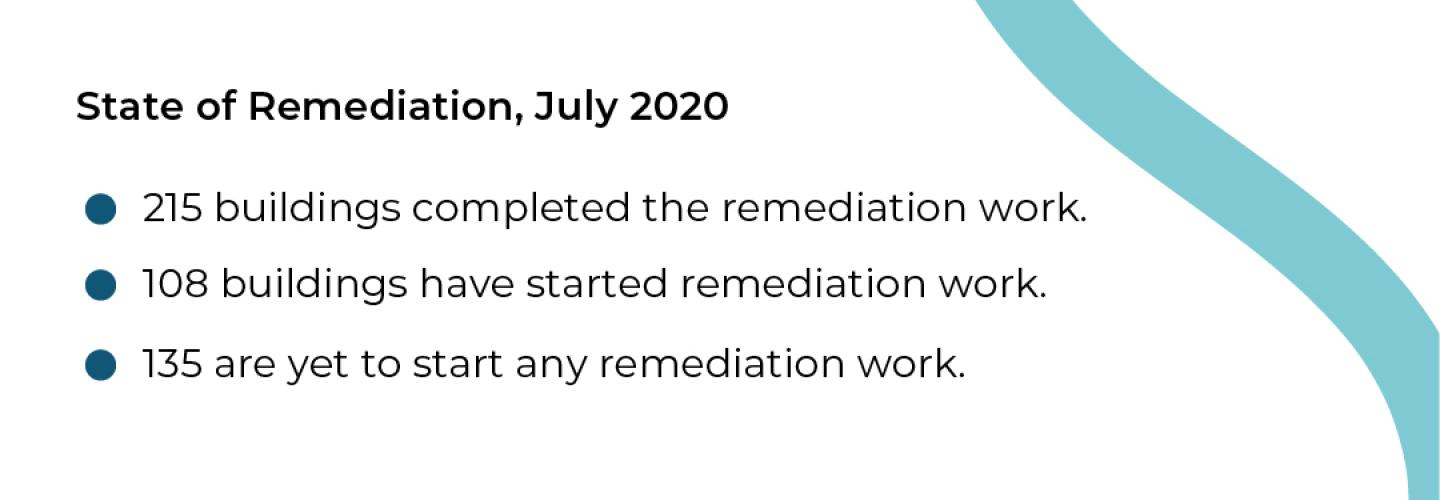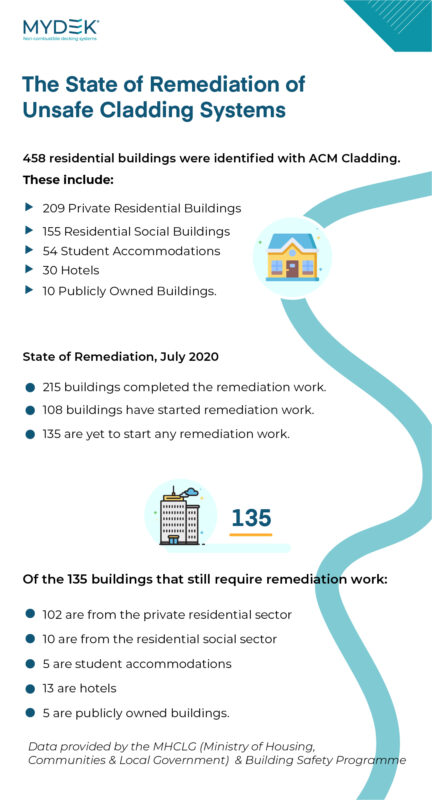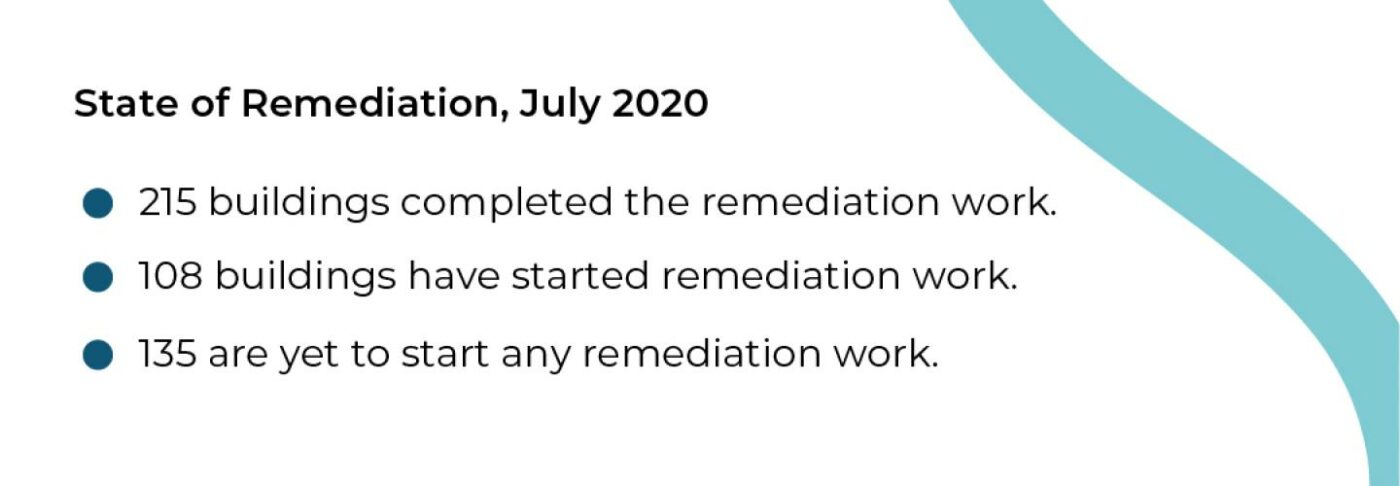
The introduction of new fire safety regulations on December 21, 2018, for external wall systems have sparked off remediation work on various hotels, student accommodations, private and social sector residential buildings across the UK. These new regulations were passed after the tragic Grenfell Tower fire, aiming to ensure that residents of high-rise buildings were safe from the risk of fire. These new guidelines, also known as the Building Safety Programme, banned the use of combustible materials in the external wall systems of all residential buildings over the height of 18 meters.

Based on the data provided by the MHCLG (Ministry of Housing, Communities & Local Government) 458 such residential buildings were identified with Aluminium Composite Material (ACM) in the cladding system, unable to meet the new building regulations. Of these 458, 209 were private residential buildings, 155 were social residential buildings, 54 were student accommodations, 30 were hotels and 10 were publicly owned buildings.
Of all the buildings requiring remediation work, 215 buildings completed the remediation work and no longer have ACM cladding systems as of July 2020. Of these, 29 were from the private residential sector, 78 from the residential social sector, 37 student accommodations, ten hotels and four publicly owned buildings.
Out of the remaining 243 buildings carrying ACM cladding, 108 buildings have already started remediation work. Of these 108, 78 are from the Private residential sector, 67 are from the Social residential sector, 12 student accommodations, seven hotels and one publicly owned building. The other 135 are yet to start any remediation work.
The remaining 135 buildings still need to start their remediation work. Of these, 102 are from the private residential sector; ten are from the residential social sector, five student accommodations, 13 hotels and five are publicly owned buildings.
Private Sector Remediation Fund
On May 2019, the government set up the Private Sector Remediation Fund to help private sector residential buildings with ACM cladding to meet the Building Safety Programme regulations of 2018. In July 2019, the government further published guidance for these buildings to apply for the fund. The aim of this fund was to ensure that leaseholders would be protected from these costs of remediation. Eligible buildings could apply for this fund starting from September 2019 until the cut-off in December 2019.
In order to apply for the fund, applicants were required to submit information to confirm that their building was eligible for funding along with information on the costs. In certain cases, applicants could require initial funding to allow them to tender for the ACM remediation work and submit a full cost application. The full-cost applications would cover the full cost of ACM remediation work once the applicant had completed the tendering exercise.
Of the 200 million made available in this Private Sector Remediation Fund, funds of 53 million have already been approved as of July 31, 2020.
Impact of COVID 19 on Remediation
The government published its guidance on remediation work during the COVID 19 emergency. Its view throughout the emergency has been that the remediation work is a priority and should be continued with building safety guidelines in place. The MHCLG was also in touch with all the buildings that had begun their remediation work to understand the impact of COVID 19 on the progress. Based on this report, it was determined that about 81 sites paused work due to the COVID 19 restrictions and 81% of those had resumed work as of July 31, 2020. Sixty buildings have resumed work post the restrictions being lifted and six others are waiting for building control sign-off from the authorities.
Source: Building Safety Programme: Monthly Data Release

